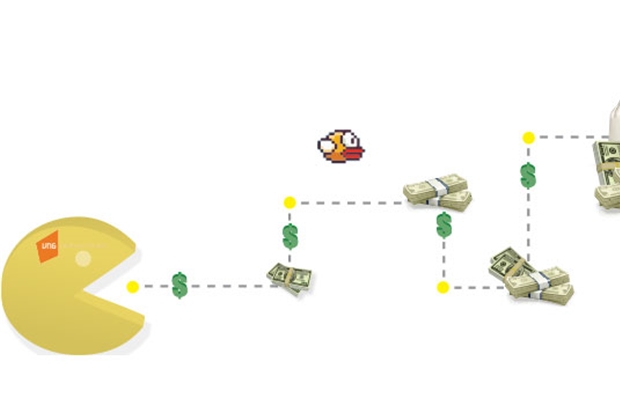

Vietnamese game developers have been focusing on creating games for mobile phones running on iOS or Android, realizing that the investing in PC games is prohibitively expensive.
There are about 40 firms and studios making and distributing games nationwide. The game studios are mostly located in HCM City, Hanoi and Da Nang. Some studios do only outsourcing for foreign partners, while many others work as manufacturers.
A survey of Newzoo shows the increasingly high market share of mobile games. The games brought 17.4 percent of total game revenue in 2013, while the proportion is expected to reach 27.8 percent by 2016.
In Vietnam, the iOS- and Android-based games for smartphones soared from zero to $2 million a month in 2012, then to $25.5 million in 2013. The revenue is forecast to reach $35 million this year and $52 million by 2016.
Vietnam is believed to be a fast-growing market with a rapidly increasing number of internet users and smartphone owners. The country now ranks second in the world in the growth rate of smartphone users, with 17 million smartphones in use.
Meanwhile, game developers have been strongly encouraged by the success of Flappy Bird, a mobile game developed by Nguyen Ha Dong, which eventually topped the list of games with the highest number of downloads.
DivMob, one of the successful games developers, reportedly has developed 10 games for Android and iOS smartphones, which had over 20 million downloads worldwide in 2013.
Commenting about the potential of mobile games, Le Hong Minh, a senior executive of VNG, said it was easy for Vietnamese firms to make games but it was difficult to make money.
Nguyen Tien Dung, managing director of ZoyGame, thinks that mobile games could be a playing field for many different players, from large firms to small game studios to individuals, because there are many different platforms to develop games.
The existence of many players in the same market, however, would create a more competitive field.
A report released at an online game workshop held several days ago showed that 90 percent of online games failed during the production phase. Nine percent failed when they were launched on the market, and and only 1 percent could bring profits to investors.
Ta Nam Anh, game distribution director of VNG, said it was not too costly to develop a mobile game. It takes a studio of only 8-10 programmers about six months to create a mobile game, while the average initial investment cost is about VND500 million, not including operation costs.
However, success depends on whether the producers are powerful enough to maintain the products for a long time and if the games can attract many players.